I am fresh off my third back-to-back watch of Ted Lasso. I have never before finished a TV show and immediately began at the beginning again — never mind twice in a row. If you’ve watched it, though, you know there’s something about Ted Lasso. I want to always feel the way I feel when I’m watching it. It’s rare to watch something that is so unabashedly celebrating kindness and sincerity, especially from a comedy.
Our favorite mustachioed fish out of water coach returns July 23, but until then, I have nothing to do but wait. And what does a fan do while eagerly awaiting a sequel? They speculate.
Ted Lasso is a show that loves to make references, from music (and musicals) to movies and books. In fact, some of the most memorable character moments come from their interactions with literature. So I have gone through the first reason and noted every book mentioned, referenced, or shown, no matter how briefly. I assume these are all planted deliberately, and that if I can just crack the code, I will be able to unveil all the easter eggs hidden in plain site! (Okay, I might have mixed some metaphors there, but I don’t think Ted would mind.)
Unfortunately, for a show that is so inclusive, it sure talks a lot about books by white authors. Hopefully season 2 will bring with it some more diverse literary references!
I will be going through the episodes in order, and using the most significant book mentions of each episode to make a season 2 prediction. But first, the big books of the season: the ones that feature in multiple episodes, and what they might mean for the show going forward. Most of these I haven’t read myself, so I’m going off the information I could find. If you have other insights on these books and how they might relate to season 2, please let me know!
This post obviously contains spoilers for season 1, as well as spoilers from the trailer for season 2 — ideally it will also contain spoilers for season 2, but I can’t guarantee that!
Books Featured in Multiple Ted Lasso Episodes
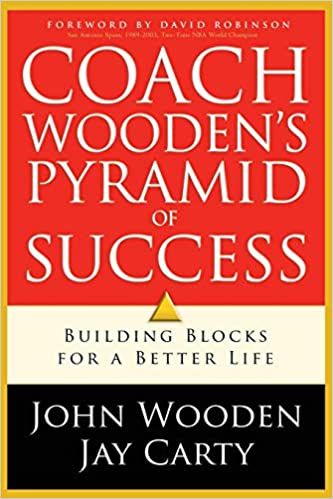
Coach Wooden’s Pyramid of Success by John Wooden and Jay Carty
Ted has a poster of the Pyramid of Success on his wall, signed by John Wooden. This is clearly something he values enough to take with him to England. We first see it in episode 1, and we get a closeup in episode 8. I won’t go into every block on the pyramid, but it’s a big source of inspiration for Ted’s coaching style.
In fact, Jason Sudeikis taught using the Pyramid of Success in improv classes! His high school basketball coach instilled it in him, as explained in an episode of The Lead podcast. (Do you think I am writing this as a casual fan? No! I have done research!)
Prediction for season 2: Ted and the team have tackled most of the blocks during season 1. Now all that’s left is Competitive Greatness. As Beard has pointed out, Ted needs to figure out how to value winning. That might require some Resourcefulness and Fight (also on the pyramid). My prediction is that Ted has to make some hard choices to make them competitive in season 2, maybe by replacing a player.
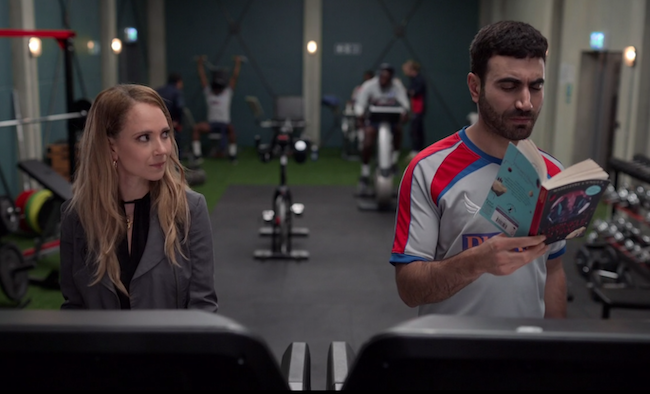
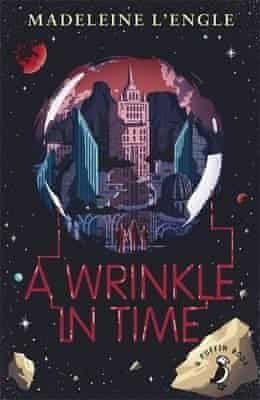
A Wrinkle In Time by Madeleine L’Engle
This, of course, is the book Ted assigns to Roy when he gives every member of the team a book. This is when I started really paying attention to how books are used in the story! Luckily, the show explains the significance of this one:
Roy: “I mean, what even is A Wrinkle In Time?”
Trent Crimm (The Independent): “It’s a lovely novel. It’s the story of a young girl’s struggle with the burden of leadership as she journeys through space.”
Ted: “Yeah. That’s it.”
Roy: “Am I supposed to be the little girl?”
Ted: “I’d like you to be.”
Later, as Roy reads it to his niece, he says, “What do you understand? That is has to be me. That it can’t be anyone else…FUCK!”
Obviously, this is a book that is meant to inspire Roy to step up and be a leader. Appropriate, since Meg can also be a bit prickly but has a heart of gold. This isn’t the book you would expected a football coach to assign to a player, though.
In researching this, I found a beautiful guest post by Jaime Green on Madeleine L’Engle’s blog I recommend you read, about how our flaws can be gifts: What’s A Wrinkle in Time Doing in Ted Lasso?
Prediction for season 2: With Roy already being benched before his injury and passing his captain title to Isaac, it’s hard to know what Roy’s role will be in the next season. Obviously, he should lead somehow — but in what way? It doesn’t seem like the team needs a fourth coach. Will he start coaching high school students, like Shannon (“Soccer Girl” in the credits)? Notably, in his appearances in the season 2 trailer, he’s not in uniform or with the team. He’ll be going on a journey of exploration for sure, but my prediction is that he’ll end up coaching kids or teens. His niece adores him, and despite his adult language, the kids at Phoebe’s school seem to love him, too.
The Harry Potter series by JK Rowling
This is an attempt at a complete list, which means I have to include that Harry Potter gets mentioned multiple times in the series. It’s a shame, because I wish the show wouldn’t promote JK Rowling, who has only doubled down on her transmisogynistic comments. I like to imagine that’s not true in the Ted Lasso universe.
The series is associated the most with Sam, an optimistic character who adds warmth to any scene he’s in. In episode 6, he tells Rebecca he likes the idea of an author making so much money — instead of being famous or rich just from your parents. In episode 7, Sassy tells Ted to send her a fax to her past telling her to kill JK Rowling and write the series herself. There’s also a player named Snape, according the names displayed in the locker room.
Prediction for season 2: I hope that Sam gets some focus in season 2 with his own character arc. It may be that he loses some of the childlike innocence that associates him with a children’s fantasy series. We definitely see Dani, another cheery player, going through something difficult in the season 2 trailer. Given that I predicted Ted trading a beloved player, maybe it will be Sam! I hope not.
Books in Episode 1: Pilot
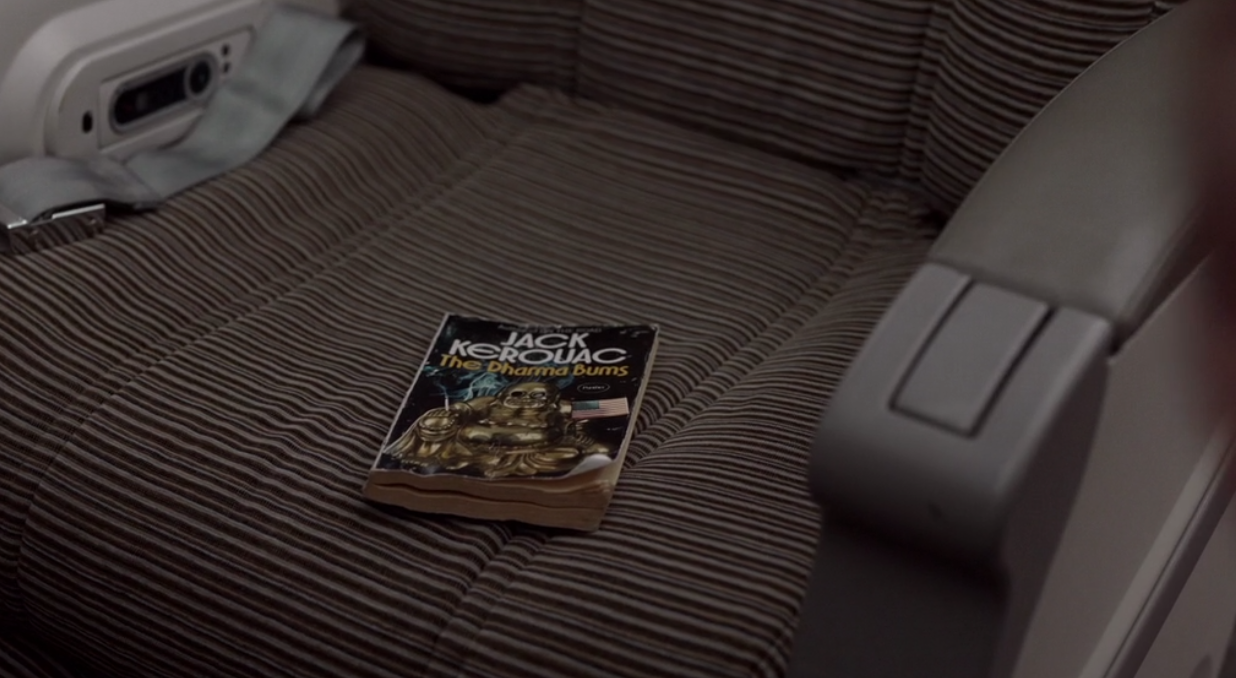
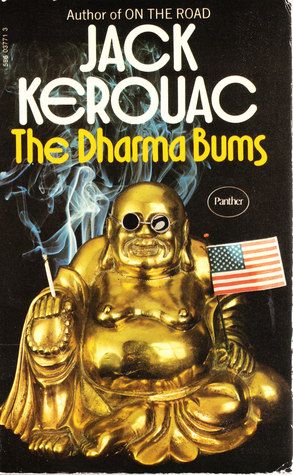
The Dharma Bums by Jack Kerouac
While Beard is studying as many football books he can on the flight over, Ted is reading a novel. It appears to be a well-loved copy, and my bookseller partner says that particular edition is not very common. I’m going to assume that means that Ted is a fan of this book and didn’t just find it in the airport.
Specifically, he opens up to chapter 14. In that chapter, Ray is preparing for a solitary trip in the wilderness to find himself. Ted is likely influenced by Buddhism, and he also seems to be using this trip (though not into the wilderness) to find himself.
Prediction for season 2: Ray has to experience solitude to find wisdom. Ted is definitely a people person, but he may have to go through isolation to become the coach the team needs. Maybe this means that Beard and Nathan are unavailable at a key moment, and he needs to have the knowledge to make his own decision. Or it may be that the new team psychologist advises him to spend time alone or even begin meditating.
Other books in episode 1:
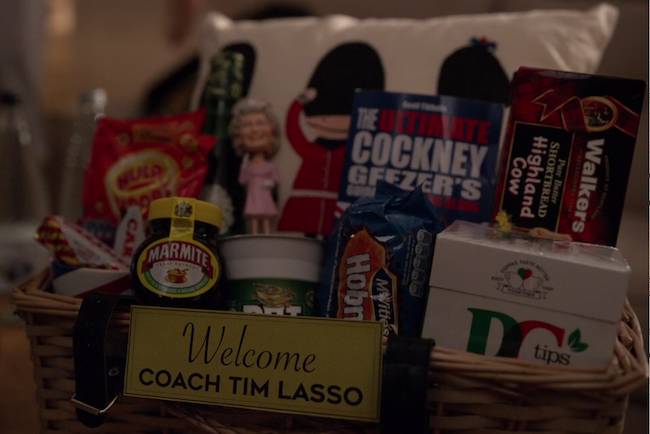
- Beard is reading Coaching Soccer for Dummies and Inverting the Pyramid on the plane, showing his dedication to learning the particulars of the game.
- When Ted comes into his room, he’s greeted with a gift basket addressed to “Coach Tim Lasso,” a backhanded welcome that makes sense considering Rebecca’s reasons for hiring him. Included is the book The Ultimate Cockney Geezer’s Guide to Rhyming Slang by Geoff Tibballs, which does seem like something Ted would enjoy. In fact, in episode 10, we see it again on a side table, clearly opened and read (at least in part). Maybe Ted is trying to learn more about English culture!
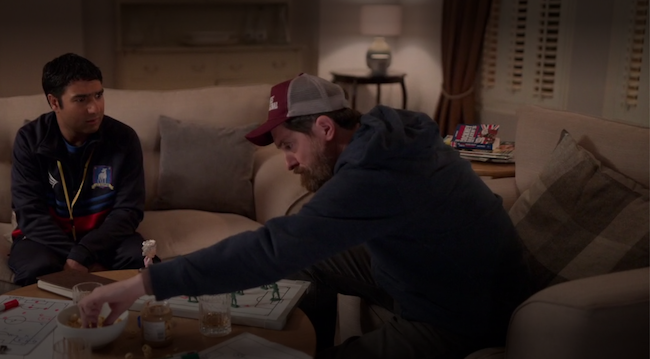
Episode 2: Biscuits
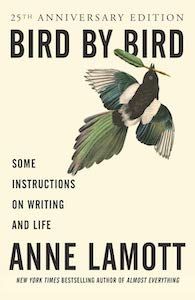
Bird by Bird by Anne Lamott
As Beard and Ted walk home after coaching their first game, Beard says, “I hate losing.”
Ted replies, “Bird by bird, coach.”
That’s a reference to the revered writing book, Bird by Bird. In it, Lamott describes her brother when they were younger, having put off a months-long project about birds until the night before. As he sat there, overwhelmed by the bird information spread out in front of him, their father told him, “Bird by bird, buddy. Just take it bird by bird.”
This is definitely a strategy we see Ted employ often. When faced with a team that has a broken spirit and is outright hostile towards him, he wins them over as individuals, looking to address each problem one by one. This can also be seen in AFC Richmond’s motto, visible on the walls of the conference room: “Gradarius Firmus Victoria,” roughly translated as “taking steps towards victory” or, effectively, “slow and steady wins the race.”
Prediction for season 2: We’ve already seen in the season 2 trailer that AFC Richmond will face a string of ties. This book reference suggests they will show gradual improvement, winning more games later in the season, and — of course — leading to victory. They have to get a promotion spot by the end!
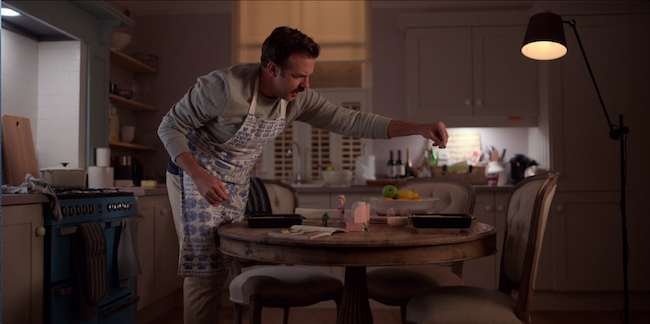
Other books in episode 2:
- One of the first things Ted says to the team as a coach is a literary reference: “We’re gonna call this drill ‘The Exorcist,’ ’cause it’s all about controlling possession.” The team is not amused, but this is a good introduction of Ted’s coaching style: funny, irreverent, but practical beneath it.
- An ongoing bit between Ted and Beard is word games, like “If I were to get fired from my job where I’m puttin’ cleats in the trunk of my car…” Beard: “You got the boot from puttin’ boots in the boot.” Later, Ted sets up a rhyming version, which includes, “Reading Alex Haley’s most seminal work.” Beard replies “You’d be in cahoots with Puss in Boots…reading Roots,” and Ted corrects, “No, The Autobiography of Malcolm X. I gotcha.” This confirms that both Beard and Ted are well-read, and considering that their last shared literary reference was an Anne Lamott writing book, they seem to read broadly, which matches their progressive worldview.
- There is a rumor going around that the biscuits recipe has been revealed, and it’s a New York Times recipe. In the spirit of over-analyzing, I have to object. Ted is clearly using a recipe from a cookbook in episode 2, though it’s impossible to tell which one.
Episode 3: Tent Crimm: The Independent
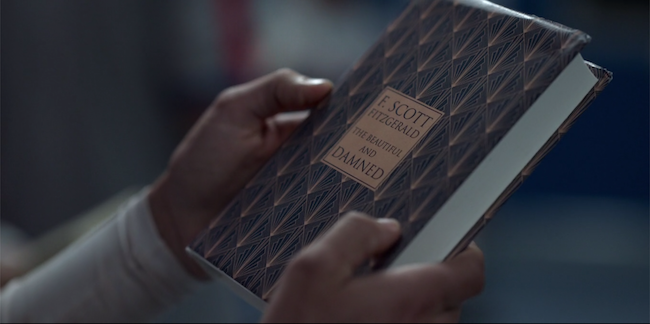
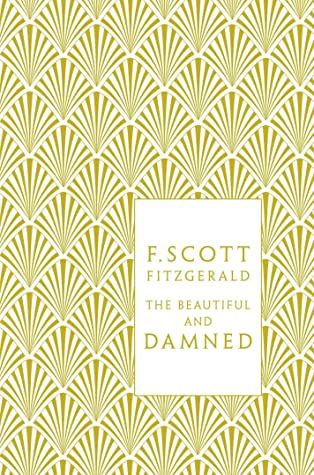
The Beautiful and the Damned by F. Scott Fitzgerald
Of course, the most significant book in this episode was A Wrinkle In Time, but we’ve already covered that one, so let’s look at some of the other books Ted gave the players. Jamie got a gorgeous hardcover of The Beautiful and the Damned (in an edition I can’t seem to find online). When he unwrapped it, he says, “…It’s a fucking book” and promptly throws it away.
This story follows a couple consumed by their selfishness in the Jazz Age. Another motif of this story is how they both are obsessed with the past, as well as with status and wealth above all. It’s a mortality tale. Despite Jamie not reading a single page of the book, we do see this message get through in other ways: in a later episode, Jamie admits that he has been shaped by his father’s cruelty, consumed by his own past, and seems to be beginning to make changes — only to have Rebecca transfer him back before we can tell for sure.
Prediction for season 2: Jamie has always been a two steps forward, one (or two) steps back kind of character. We have already seen him become less selfish by making the extra pass for the winning goal. Hopefully we’ll see this continue in season 2. We already has a teaser in the trailer that looked like him talking to Ted. It’s hard to know what Jamie’s relationship will be with the team now that they’re in different leagues. In the book, the main character falls to ruin, but hopefully Jamie has gotten enough of a warning to avoid that. My prediction is that he does not return to AFC Richmond, but he does regularly come to Ted for advice, and becomes a better player (and person) because of it.
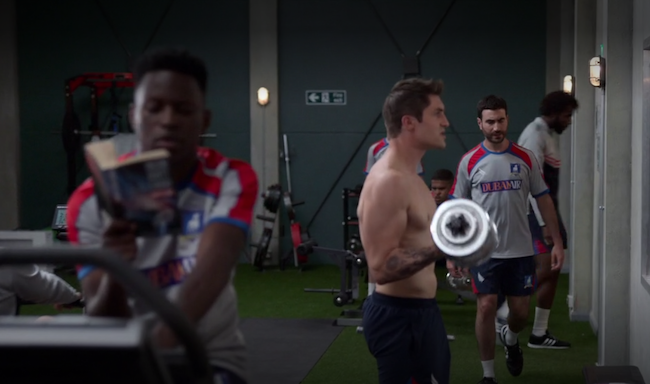
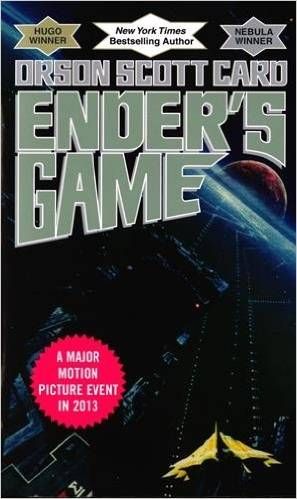
Ender’s Game by Orson Scott Card
Sam is given Ender’s Game — why does this character keep getting stuck with SFF books starring kids by authors with transphobic or homophobic viewpoints? Alas. Still, the question I have with this choice is who Sam is meant to be: Bean or Ender. Both are underestimated children who go on to be powerful, but they have different arcs and personalities. This could be a message to Sam to not let himself be underestimated. Like Ender, he has been plucked from obscurity and has to make it in a new environment. This is also a story about imperialism and understanding the other, which is an appropriate pick, since Sam just reminded Ted of the U.S.’s imperialism in Nigeria.
Prediction for season 2: (Spoilers for Ender’s Game) The football matches weren’t games at all: they’ve been fighting a war against aliens this whole time. (End of spoilers) In all seriousness, though, my prediction is that Sam becomes more of a leader, especially around strategy, in season 2. Although Isaac is the new captain, I think Sam will be the strategist and find his voice. Hopefully this means he’ll get more screen time, too!
Other books in episode 3:
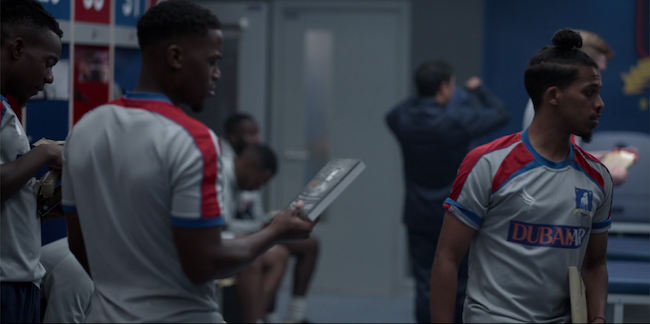
- These are not the books you would expect a football coach to assign their players. Robbie — a character who has gotten very little screen time, but who later swaps in for Jamie in a game — unwraps Miss Peregrine’s Home for Peculiar Children by Ransom Riggs, a YA fantasy series about a group of “peculiar children” with different abilities. This seems to be a message about different people coming together in community, likely encouraging Robbie to feel like a vital part of the team — which is probably the same reason Ted chooses him to play in a crucial game instead of star player Jamie. That substitution was made because the team was falling apart, so Robbie represents a character who helps to meld them into a cohesive group: a team player, not a show-off star.
- Coach Beard is reading Quiet Genius: Bob Paisley, British Football’s Greatest Manager when Roy lets them know about Nate getting bullied. For Beard, of course, this reinforces that he is always seeking to learn and improve. Paisley’s coaching style is often referred to as “understated” or “quiet.” When he became coach, he told the team he was “only looking after the shop until a proper manager arrives,” but he would go on to be extremely successful, racking up a ton of trophies. “Bob Paisley created teams and destroyed teams. He won trophies and he spoke softly.” This is a perfect role model for Beard, but it also is exactly what Ted and Beard are doing in that scene: quietly leading. Ted explains that they need Roy to step up and be a leader, which is why he won’t interfere with Nate getting bullied — they need Roy to do it. And it goes exactly as planned.
- Ted calls Nathan Nate the Great, which is probably not a reference to the kids’ book series, but Nate does sleuth out the players’ weaknesses and strengths!
- Ted tells Trent Crimm: “Watch your back, Gay Talese. There’s a new iconic profile about to be typed up by one Trent Crimm.” Gay Telese is an American journalist who worked at The New York Times in the 1960s, helping to shape literary journalism, and also wrote biographies. This is another example of how broad Ted’s literary references are, though we don’t see him with a book very often.
- Rebecca has coffee table books in her office, and they are clearly there just for decor (for the character and the show), but I have spent ages trying to figure out the titles. One is Images of Football, another is The Impressionists by William Gaunt, I think, and one has “Living” in the title, and that’s as far as I can get. Still, it shows the image Rebecca wants to project: of someone sophisticated and put-together, though we all know she’d never actually look through a football photography book.
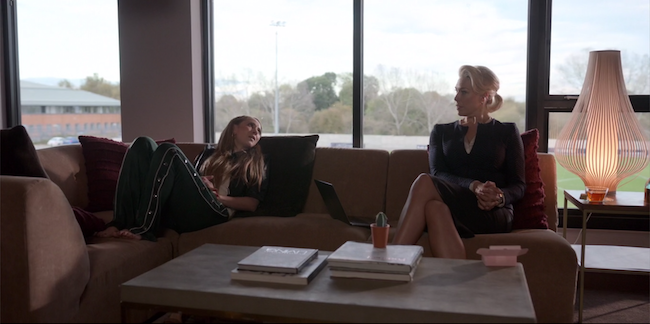
Episode 4: For the Children
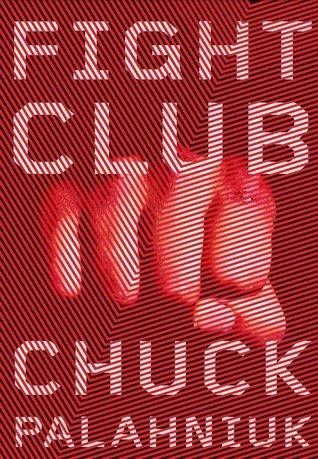
Fight Club by Chuck Palahniuk
While the last episode was very book-heavy, the next two are pretty light on literary references. Fight Club is a story about ’90s views of consumerism and about toxic masculinity. Unsurprisingly, Ted is against grandiose displays of machismo in the form of fights.
Prediction for season 2: We can tell from the trailer that the team is in a slump — unsurprisingly, after being relegated. This may foreshadow that anger being turned on each other in season 2, especially if new teammates or trades means damaging their established community. Maybe that’s part of the reason they decide to bring in a sports psychiatrist.
Other books in episode 4:
- When Ted arranges Jamie and Roy to be at the same table at the auction, he says, “I parent trapped y’all.” Little-known fact: the movie The Parent Trap is based on a book, Lottie and Lisa! This shows that despite Ted’s honesty, he’s not above a little trickery to convince people to get along. I can only assume this means that in season 2, Jamie is going to pull a parent trap and play as one of the other characters, but in a wig. (I’m joking…unless…)
- Ted explains to Rebecca about Nat Cole, the busker: “You do not want to judge this book by its cover.” And he’s right! He’s a hit, which shows that despite Rupert’s manipulations and cruelty, sometimes optimism like Ted’s can cut right through it.
Episode 5: Tan Lines
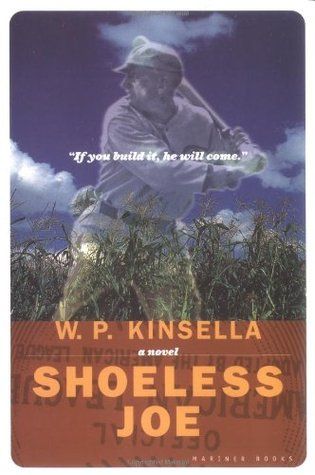
Shoeless Joe by W.P. Kinsella
Ted and Henry are assembling a LEGO bus together when Michelle asks why they don’t go ride on the real thing. Henry insists on building theirs first, and Ted approves: “Kind of a Field of Dreams paradigm.” Field of Dreams is based on Shoeless Joe. (This is the only book reference I could spot in this episode!) This is a story about following your dreams, even when others doubt you, which is fitting for Ted Lasso, even if the reference is a throwaway one — the famous line is “If you build it, he will come,” and Ted is referring to literally building a LEGO bus before riding one.
Prediction for season 2: Having won over the ghosts in season 1, they will now help out in season 2. AFC Richmond’s star player will be a ghost!…Either that, or they will face dark times before having their belief in their shared dream come to fruition.
Episode 6: Two Aces
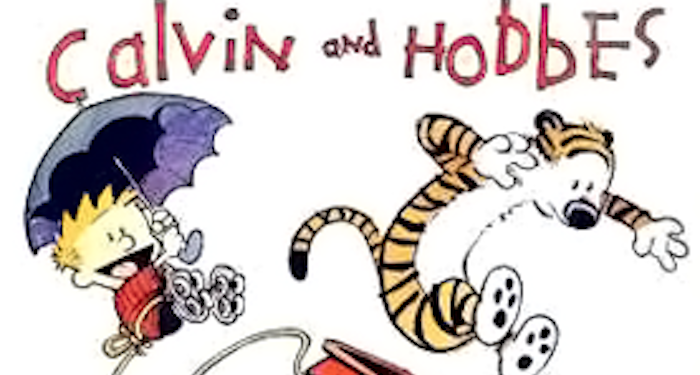
Calvin and Hobbes by Bill Watterson
As the team gathers to lay to rest the curse on their treatment room, Ted says, “What I can tell you, is that with the exception of the wit and wisdom of Calvin and Hobbes, not much lasts forever.” And that’s true. Little known Book Riot fact: 16 Things Calvin and Hobbes Said Better Than Anyone Else is one of our most-viewed posts of all time. It just doesn’t get old.
But what is Calvin and Hobbes saying, and how is it relevant to Ted Lasso? It’s a story about belief and imagination: Hobbes is, theoretically, an imaginary tiger. It’s about the innocence of childhood — but Calvin is also not innocent at all. He can be wise as well as jaded. Calvin and Hobbes deals with the absurdities and indignities of life while reminding us to find joy in the everyday, like we did as kids. No wonder we’re nostalgic for Calvin and Hobbes: the comics themselves are nostalgic for childhood. They’re a celebration, but with the underlying sadness of knowing that it must end.
Prediction for season 2: As I’ve noted before, the team will have to experience a reckoning. Childlike hope and innocence may not be enough, though belief will be part of what they need. The characters I associate the most with this are Dani and Sam, both of whom I predict will face something that tests that joyfulness — we already see some of that from Dani in the trailer. But the wisdom of Calvin and Hobbes lasts forever: they’ll be able to pull through and retain some of that optimistic, open energy.
Other books in episode 6:
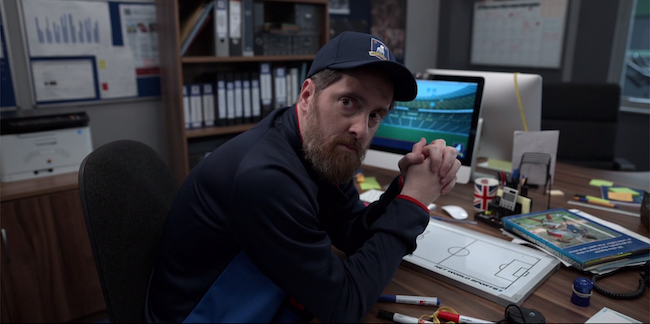
- At the bar, before discussing the treatment room, the team disagrees on the best Scorsese film — and they’re all inspired by books. Ted picks Color of Money, Colin argues for Goodfellas, Isaac replies with Age of Innocence, and Beard counters with Cape Fear. I’m sure a bigger film buff than me can interpret what that means for their characters.
- This is definitely not a deliberate reference, but when they learn that they possibly have 400 ghosts, Colin replies, “That’s too many ghosts.”
- Ted strolls into their office after passing through a bustling, happy locker room, only to see Beard looking ominous. On his desk is The Arco Book of Soccer Techniques and Tactics, which it looks like he’s been referencing, based on the pages sticking out. Beard is never done learning!
Episode 7: Make Rebecca Great Again
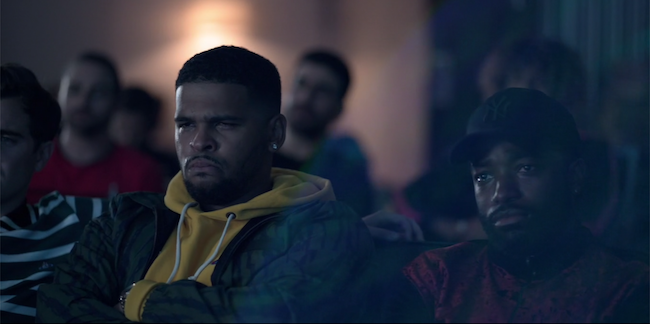
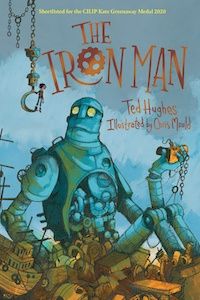
The Iron Man by Ted Hughes
After the team turns down his pillow fight proposal — again — they watch The Iron Giant, based on The Iron Man. Before leaving the room, Ted asks Beard, “Hey, do me a favor. Keep an eye on these guys, ’cause around the 74 minute mark, there’s gonna be a room full of grown men crying.” Beard replies, “I’ll be one of ’em.” This is another outright condemnation of toxic masculinity. They are able to cry together at a children’s movie.
Prediction for season 2: (Spoilers for The Iron Giant) The Iron Giant sacrifices himself to save the world — but when Hogarth sees the screw moving, he knows it is repairing itself. It just needs time. (End of spoilers) The team is likely to get separated in season 2, but by the end, they will be back together again. Even Jamie.
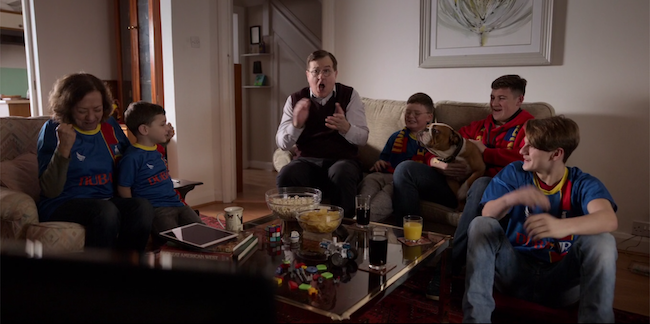
Other books in episode 7:
- Higgins has two books on his table: one on the Great American West (an attempt to learn about Ted’s homeland?) and another unclear coffee table book.
- Nathan tells Sam, “The only African I know more imprisoned by their own thoughts is goddamn Nelson Mandela,” who is also an author. This lines up with my prediction that Sam will take a leadership role and develop more confidence in season 2.
- He then tells Dani his defense is death, and that, “The only person I’ve seen lose their man more often is Carrie fucking Bradshaw.” (Sex and the City was originally a book.) Ted helpfully tells Beard where the reference is from, but Beard answers, “Shh.” He doesn’t need to be told who Carrie Bradshaw is. They really do have a wide spectrum of media references.
Episode 8: The Diamond Dogs
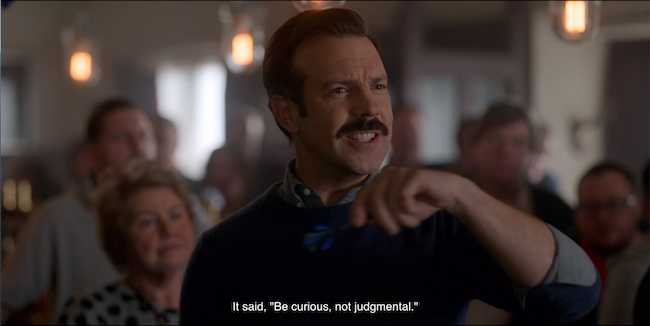
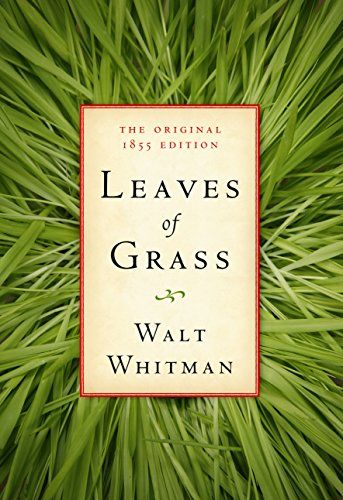
Leaves of Grass by Walt Whitman
One of the best moments of the show is Ted’s speech to Rupert while playing darts, about being underestimated. I won’t recap it all, but he says that he saw a quote by Walt Whitman painted on a wall: “Be curious, not judgmental.” This is a great encapsulation of what makes Ted such an admirable person — but it’s not by Walt Whitman. It’s been misattributed to Leaves of Grass for many years, but it doesn’t actually appear there. So it is likely that Ted saw that on a wall, but it doesn’t actually show up in the pages.
Prediction for season 2: Like The Dharma Bums, this also involves someone going into nature to find themselves, which only reinforces my prediction that Ted will have to spend some time alone, likely in nature, to come to the realizations he’ll need by the end of the season for AFC Richmond to have a chance at promotion.
Other books in episode 8:
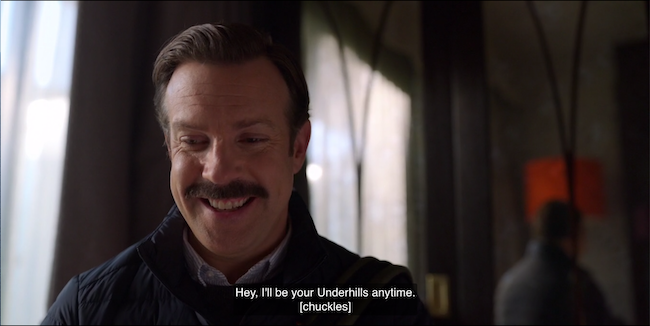
- In another deep cut reference, Ted tells Sassy — after she says she’s going to order breakfast on his tab — “I’ll be your Underhills anytime.” Underhill is a character from Fletch, based on Fletch by Gregory Mcdonald. The main character surreptitiously uses his tab for lavish lunches.
- In his series of milk puns, Ted mentions “Bridget Jones’s Dairy,” which confirms his love of romcoms.
- The odious Rupert recites, “Friends, Richmonds, countrymen. Our club’s nightmare is over now. I’m back,” echoing the speech from Julius Caesar. I can only hope he ends up stabbed by a trusted friend in season 2. (Too harsh?)
Episode 9: All Apologies
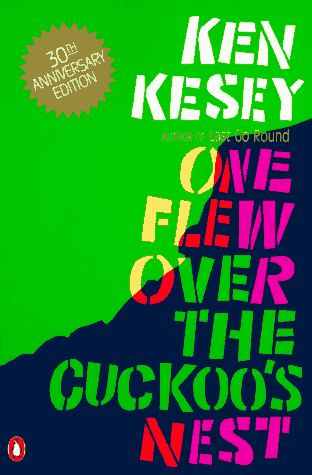
One Flew Over the Cuckoo’s Nest by Ken Kesey
When Beard comes armed with a series of pints for Ted after his difficult conversation with Roy (about benching him), Ted says, “Coach, you are a natural-born caregiver. Like Chief from Cuckoo’s Nest.” Beard replies, ” I was always more of a Taber guy.” Chief, who rarely speaks, is an easy comparison for Beard, but he aligns himself with a more outwardly rebellious and profane Taber.
Prediction for season 2: I think this more closely foreshadowed Beard’s explosive confrontation with Ted. While Ted sees him as an often silent supporter, Beard sees himself as strong-willed, angry person — at least at that moment. (Spoilers for One Flew Over the Cuckoo’s Nest) These characters meet very different ends, though. When Chief’s friend is lobotomized, he finds new strength and escapes. Taber’s rebelliousness, though, leads to electroshock therapy that leaves him a shell of his former self. (End of spoilers) I think we’ll see Beard assert himself again at least once against Ted to remind him of their priorities, but I can’t imagine them endangering the Beard and Ted bond.
Other books in episode 9:
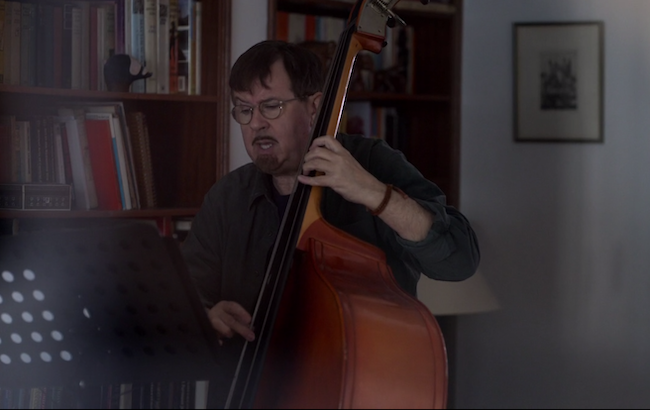
- While Rebecca is putting off telling Ted her scheme, she ponders the etymology of “procrastinating” and asks Ted if he has a dictionary to look it up. He does not. Apparently they don’t realize you can look up etymology on the internet.
- When Rebecca comes to apologize to Higgins, he is playing bass in front of his bookcase. No individual titles are visible, but they look well-loved and varied, which just adds to the homeyness of his place, overflowing with family and pets.
- Roy comes to Ted’s place to apologize for his outburst. He claims he’s usually better at concealing his anger, and Ted says, “Know thyself. Rest in peace, Socrates.” This is consistent with Ted’s philosophy of honesty as well as being aware of your own flaws and strengths.
Episode 10: The Hope That Kills You
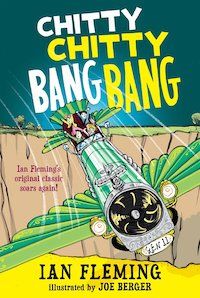
Chitty Chitty Bang Bang by Ian Fleming
One of the trick plays proposed is the “Chitty Chitty Bang Bang,” which was a book that was adapted into a musical movie. The book is about a magical car that transforms just in the nick of time to save the family from danger, often by sprouting wings.
Prediction for season 2: My prediction is that although Ted may be taking winning more seriously, he’s not going to do it the traditional route. I think we’ll see not only more trick plays, but also surprising hires and other unexpected strategies. Ted is going to keep bringing down the the chaos hammer.
Other books in episode 10:
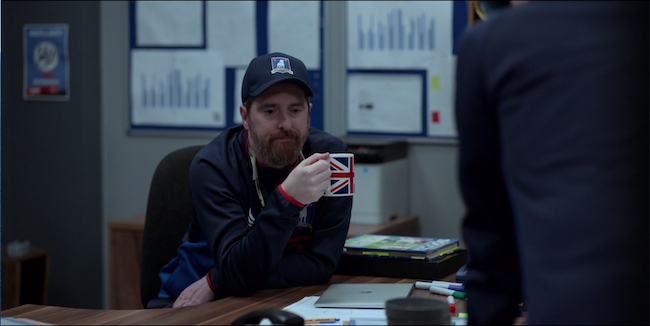
- The Arco Book of Soccer Techniques and Tactics can be seen on Beard’s desk, and it looks like it has different notes sticking out. Is Beard rereading this book? Surely there’s a soccer/football book more recent than the ’80s that deserves this much attention.
- I have to note that Rupert’s place is completely bare of books, and it adds to the unnatural, sterile feel of his place.
- I resent that one of the player’s names is Bumbercatch, because I’m always squinting at the other names to see if there are more references. Is Tartt a reference to Donna Tartt? (Almost certainly not.) One of the names visible on the board is Canterbury, like The Canterbury Tales. There’s also a player on the team named Jack Dawkins, a character from Oliver Twist.
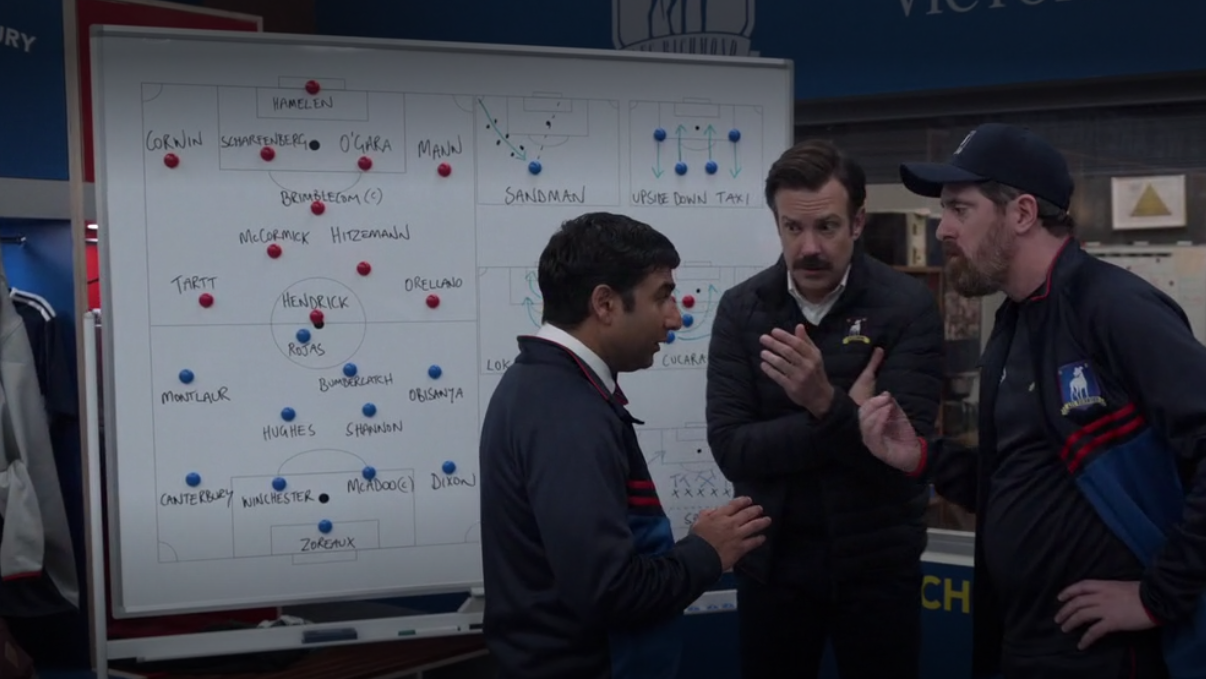
Honorable Mentions
These references aren’t technically to books, but they’re book-adjacent, so I feel the need to mention them for completionism’s sake.
- Tabloids and newspapers are frequently featured, especially in their (sexist) coverage of Rebecca(s) and Rupert.
- Fairytales make frequent appearances, including “Puss in Boots” in wordplay, “The Sandman” as a trick play, and “The Gingerbread Man” (while running laps, Ted says, “Can’t catch me. I’m the gingerbread man”). Rupert comes off as “Prince Charming” in the press, but locked Rebecca in a tower, according to Sassy. As mentioned earlier, AFC Richmond’s slogan is essentially “slow and steady wins the race,” and Roy and Jamie are set up as the Tortoise and the Hare. In the final game, Roy does manage to outrun Jamie!
- There is a reference to an actor in Jaws, which was based on a book.
- In episode 6, there’s reference to the “best laid plans,” as in the best laid plans of mice and men.
- Along with wordplay, Ted frequently mentions how important metaphors are to him.
- There’s also the ongoing bit about semantic satiation, especially with the words plan, practice, aces, and procrastination.
- In the darts scene, Ted says, “I’d love to curl up under a weighted blanket, watch You’ve Got Mail and eat a box of ‘Snookers.’” You’ve Got Mail is a romcom about competing bookstores.
Most of these books I haven’t read myself, so I’m using the information about them that I could find. If you have read them and have insight into their significance to the show, I’d love to hear about it! I’m especially interested in connections to Chapter 14 of the The Dharma Bums, since that chapter is specifically featured in the first episode.
And that’s every book mentioned or shown in the first season of Ted Lasso and what they might signal for season 2! Did I miss any? And what are your season 2 theories? While you’re waiting for the second season, try reading these 7 Cozy and Cheerful Books Like Ted Lasso.
Source : Overanalyzing Every Book in TED LASSO to Predict Season 2






